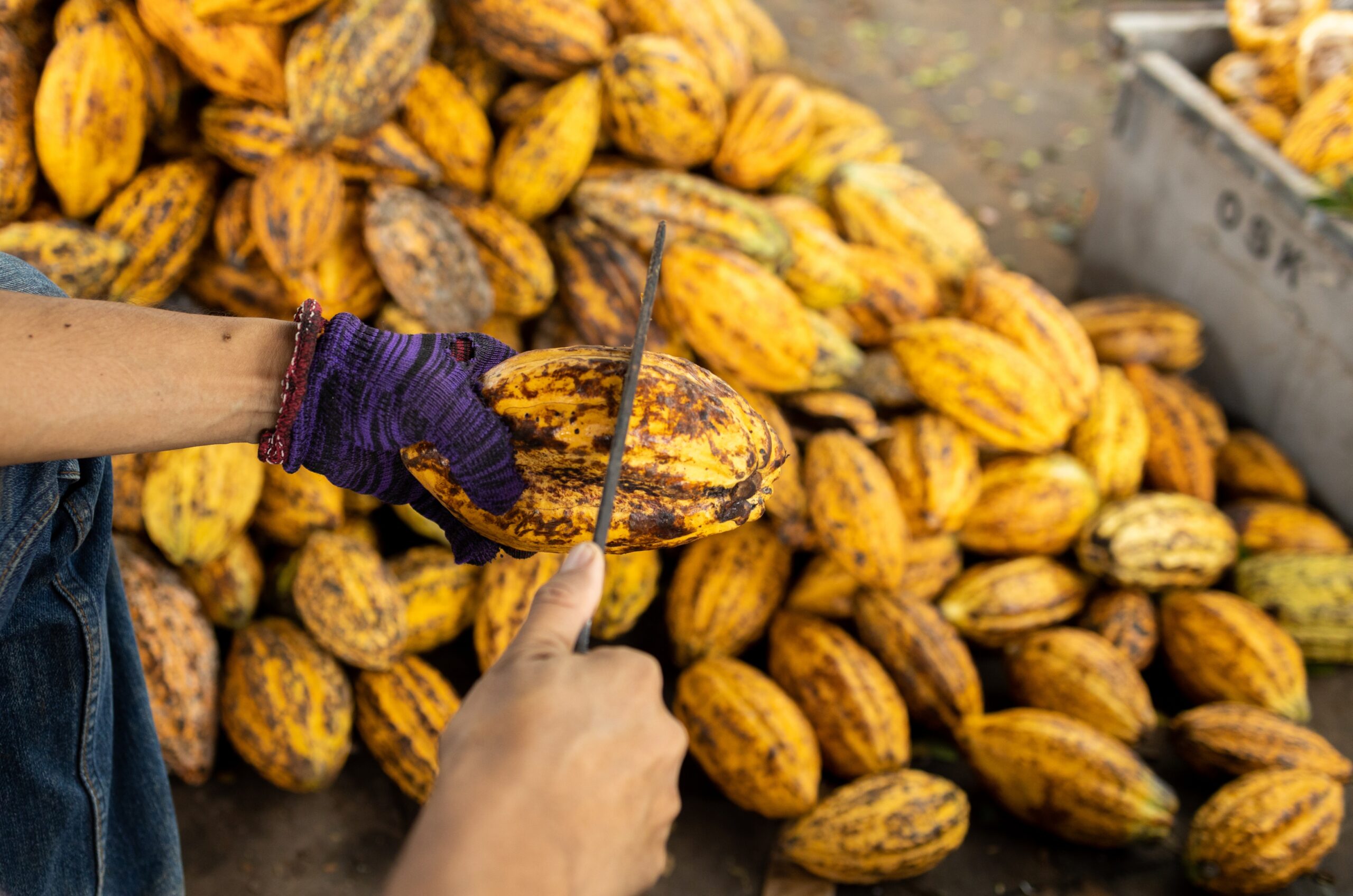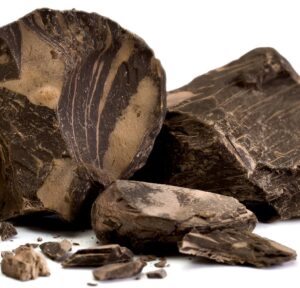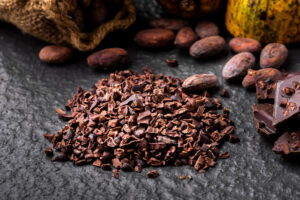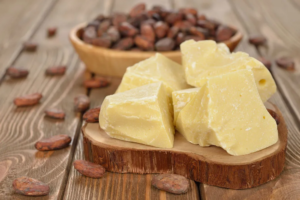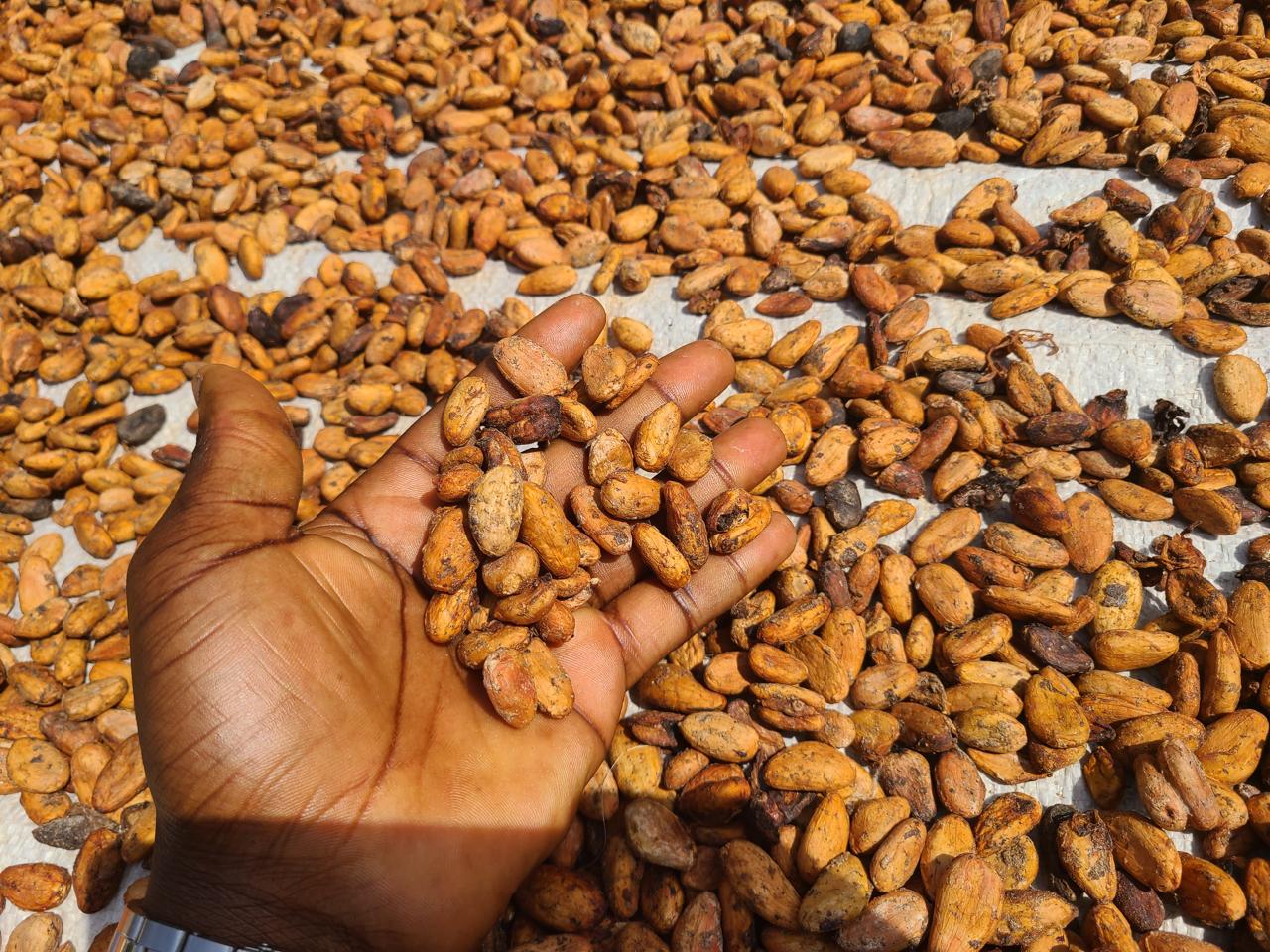
Cocoa beans are the foundation of an entire global value chain that spans agriculture, food processing, logistics, and retail. For businesses that work with cocoa, particularly at scale, sourcing beans in bulk is not just about filling containers or securing volumes. It’s about building a supply that is reliable, traceable, and aligned with both quality standards and business objectives.
If you’re involved in manufacturing, trading, or distribution—especially within regions like the UAE, Asia, or Europe—bulk cocoa beans represent a key ingredient in your broader production or export strategy. But to make informed decisions, it’s important to understand what you’re actually buying and how the industry works.
What Are Bulk Cocoa Beans?
Bulk cocoa beans refer to unprocessed, dried, and fermented seeds from the cacao tree. They’re typically traded in large quantities—commonly in 25kg to 70kg jute or burlap sacks—and are used by:
- Chocolate makers and processors
- Wholesalers and ingredient companies
- Re-exporters and commodity traders
Unlike processed cocoa products such as powder or butter, bulk cocoa beans are in their raw, natural form, making them the starting point of the entire cocoa supply chain.
Where Do The World’s Cocoa Beans Come From?
The majority of global cocoa production is concentrated in West Africa, where countries like:
- Ivory Coast
- Ghana
- Nigeria
- Cameroon
…account for over 70% of global output. Each country has its own post-harvest processing methods, flavor profiles, and grading standards. These differences affect everything from pricing and availability to how the beans perform in production.
For example:
- Ghanaian cocoa is prized for its consistent quality and high fermentation standards.
- Nigerian cocoa offers competitive pricing and is known for its high butter content—an essential factor for manufacturers.
- Ivory Coast leads in sheer volume, offering both quantity and a growing focus on traceability.
What Types of Cocoa Beans Exist?
There are three main genetic varieties of cocoa beans:
- Forastero
- Most widely cultivated
- Strong yield, robust flavor
- Dominates the commercial cocoa trade
- Criollo
- Rare, mild flavor, more delicate
- Used in high-end chocolate products
- Trinitario
- A hybrid of Criollo and Forastero
- Offers balanced flavor and disease resistance
Most bulk orders on the global market involve Forastero beans, due to their availability and processing stability.
2. Why the UAE Has Become a Key Cocoa Trade Hub
In recent years, the United Arab Emirates—particularly Dubai—has grown into a central point for global commodity movement, and cocoa is no exception. While the country itself is not a cocoa producer, its strategic position between Africa, Asia, and Europe has made it an ideal transit and redistribution hub for cocoa bean trade.
For businesses looking to import, export, or repackage cocoa beans, the UAE offers several logistical and commercial advantages that are difficult to ignore.
Geographic Advantage for Global Trade
The UAE sits at the crossroads of major global trade routes. Its proximity to West Africa—the heartland of cocoa production—means shorter transit times from cocoa-origin countries like Ghana, Nigeria, and Ivory Coast.
From Dubai’s ports, cocoa beans can be efficiently rerouted to:
- Southeast Asia (Indonesia, Malaysia, India)
- Europe (Germany, Belgium, Netherlands)
- North Africa and the Levant (Egypt, Jordan, Lebanon)
- GCC markets (Saudi Arabia, Kuwait, Bahrain)
This has turned Dubai into a re-export center for bulk cocoa shipments.
Infrastructure That Supports Scale
Dubai’s logistics infrastructure is built for volume. Ports like Jebel Ali and Port Rashid offer:
- Efficient customs clearance
- Cold storage and warehouse access
- Strong connections with air and sea freight operators
For businesses dealing in bulk agricultural products, this setup translates into faster throughput, fewer delays, and better cost control.
Business Environment That Encourages Trade
With favorable tax structures, simplified import/export procedures, and the presence of multiple free zones (like DMCC – Dubai Multi Commodities Centre), the UAE has created an environment where international buyers and suppliers can do business more easily.
For cocoa traders and distributors, this means:
- Setting up operations with 100% foreign ownership
- Access to international banking and logistics networks
- A stable regulatory environment with global reach
What makes Dubai particularly effective in cocoa trading is its dual role:
- It receives cocoa beans from producing countries, often in raw or semi-processed form.
- It re-distributes cocoa to consuming countries, manufacturers, and other trading hubs with minimal downtime.
This combination of strategic geography, built infrastructure, and supportive trade policies has made the UAE—not just a buyer—but an enabler of global cocoa movement.
3. Key Things to Consider Before Choosing a Cocoa Bean Supplier
Sourcing cocoa beans in bulk isn’t just a matter of finding the best price. While cost is important, it should be balanced with quality assurance, supplier reliability, product traceability, and logistics. These factors directly affect the performance of the beans in your production, the quality of your final product, and even your long-term reputation in the market.
Whether you’re sourcing from within the UAE or through international suppliers, here are some essential considerations before committing to a purchase:
1. Quality and Grading Standards
The quality of cocoa beans can vary widely based on:
- Fermentation (affects flavor and acidity)
- Drying methods (sun-dried vs. artificial)
- Moisture content (affects storage and mold risk)
- Bean size and uniformity
You’ll want to request samples and grade reports if possible. A reputable supplier should be able to provide documentation or even third-party lab test results on request.
2. Certifications and Compliance
For many buyers, especially those serving regulated markets or health-conscious consumers, certification matters.
Look for suppliers that can provide:
- Organic certification
- Fair Trade or UTZ certification
- Halal certification (important in UAE and surrounding markets)
- Phytosanitary certificates (for customs and food safety compliance)
These documents ensure not only the product’s quality but also ethical sourcing and regulatory clearance.
3. Packaging and Storage Standards
Bulk cocoa beans are typically packed in 25kg to 70kg jute or burlap bags, which help regulate airflow. However, packaging methods should be adapted based on your shipping needs and climate conditions.
Ask about:
- Protection from moisture and pests
- Container loading practices
- Whether fumigation is done or available
- Use of pallets or bulk bag liners (especially for long-distance transport)
4. Delivery Timelines and Logistics Capacity
Cocoa bean sourcing is sensitive to timing. Beans must be shipped and received during specific harvest windows, and any delay can affect production planning.
You’ll want to clarify:
- Lead times (from order to delivery)
- Port of origin and destination
- Whether the supplier handles FOB, CIF, or EXW terms
- Availability of real-time shipment tracking or updates
Suppliers with integrated logistics partnerships are more likely to deliver reliably and with fewer delays.
5. Supplier Transparency and Communication
Good suppliers don’t just deliver a product—they provide clarity, documentation, and consistent communication throughout the process. Look for suppliers who are:
- Responsive to inquiries
- Open about sourcing origins
- Willing to share harvest schedules and volumes
- Transparent with pricing and payment terms
This builds long-term reliability and reduces risk for buyers managing complex supply chains.
Why Choose Radad International As Your Cocoa Beans Supplier?
Radad International plays a pivotal role in the global cocoa supply chain, bridging the gap between cocoa producers and international markets with efficiency and reliability.
Sourcing: Radad International works closely with trusted cocoa farmers and cooperatives, primarily in West Africa, to source high-quality cocoa beans. The company emphasizes sustainable and ethical sourcing practices to ensure the quality and traceability of its products.
Processing: Once sourced, Radad International oversees the initial processing stages, including sorting, cleaning, and quality assessment. This guarantees that only the best beans proceed for export, maintaining consistent standards that meet global market demands.
Export and Distribution: With headquarters in Nigeria and a major operational hub in Dubai, Radad International strategically manages the export of cocoa products to various markets worldwide. The Dubai base allows efficient distribution to the Middle East, Asia, Europe, and beyond, ensuring timely delivery and competitive logistics.
Customer-Centric Approach: By offering a wide range of cocoa products—including beans, nibs, and alkalized powder—Radad International caters to diverse customer needs across industries such as confectionery, beverages, and pharmaceuticals. The company’s supply chain integration minimizes delays and maximizes product freshness and quality.
In essence, Radad International serves as a critical link in the cocoa supply chain, committed to sustainability, quality assurance, and customer satisfaction.
Tips for First-Time Bulk Cocoa Buyers
Buying cocoa in bulk can be a complex process, especially for those new to the cocoa industry. Here are some key tips to help you navigate your first bulk purchase with confidence.
- How to Request a Sample and What to Check For Before committing to a large order, always request a sample from your supplier. This helps you verify the product’s quality firsthand. When you receive a sample, inspect it carefully:
- Visual Inspection: Look for uniform color, absence of mold, and minimal broken beans or nibs.
- Smell: The cocoa should have a rich, characteristic chocolate aroma without any off or sour odors.
- Taste (if applicable): For nibs and powders, a clean, slightly bitter chocolate flavor is expected. Any off-flavors could indicate poor processing or contamination.
- Understanding INCOTERMS (FOB, CIF, EXW, etc.) International Commercial Terms (INCOTERMS) define who is responsible for shipping, insurance, and customs at different stages of delivery:
- FOB (Free On Board): The seller delivers the goods onto the ship at the port of origin. The buyer assumes responsibility after that point.
- CIF (Cost, Insurance, and Freight): The seller covers the cost, insurance, and freight to the buyer’s port. This is common for bulk commodities like cocoa.
- EXW (Ex Works): The buyer is responsible for all transportation costs from the seller’s premises onward. Understanding these terms clearly will help you avoid unexpected costs and clarify liability.
- Verifying Documents When importing cocoa, proper documentation is crucial for customs clearance and ensuring product authenticity:
- Certificate of Origin (COO): Confirms where the cocoa was grown and processed. This is vital for tariffs and trade compliance.
- Phytosanitary Certificates: Verify that the product meets health and safety standards to prevent pests and contamination.
- Laboratory Reports: Include details on quality, moisture content, and contaminants to guarantee the product meets buyer specifications. Always cross-check these documents with your supplier before finalizing your purchase.
- Choosing Between Cocoa Beans, Nibs, Powder, and Butter Each cocoa product serves different purposes and choosing the right one depends on your intended use:
- Cocoa Beans: Raw or fermented whole beans for roasting or further processing. Ideal if you want control over flavor development.
- Cocoa Nibs: Crushed roasted beans, used in baking or as toppings. They retain intense cocoa flavor and are less processed.
- Cocoa Powder: Processed powder used in baking, beverages, and confections. Alkalized (Dutched) powder has a milder taste and darker color.
- Cocoa Butter: Fat extracted from the beans, widely used in chocolate making, cosmetics, and pharmaceuticals.
Knowing your end product requirements will help you select the right form and grade of cocoa.
Frequently Asked Questions (FAQs)
What types of cocoa products does Radad International supply?
Radad International offers a range of cocoa products including raw and fermented cocoa beans, cocoa nibs, alkalized (Dutched) cocoa powder, and cocoa butter. These products cater to various industries such as confectionery, beverages, cosmetics, and pharmaceuticals.
How does Radad International ensure the quality of its cocoa products?
The company sources beans directly from trusted farmers and cooperatives, following strict quality control procedures at every stage—from harvesting and fermentation to processing and packaging. Quality is verified through laboratory testing and compliance with international standards.
Can I request samples before placing a bulk order?
Yes, Radad International provides samples for prospective buyers to assess product quality before committing to bulk purchases. Sample requests typically take between 3 to 7 business days to process.
What are the common INCOTERMS used for shipping bulk cocoa, and what do they mean?
Common INCOTERMS include FOB (Free On Board), where the buyer assumes responsibility once goods are on the shipping vessel; CIF (Cost, Insurance, and Freight), where the seller covers shipping and insurance to the destination port; and EXW (Ex Works), where the buyer handles all logistics from the seller’s premises. Choosing the right term depends on your logistics preferences.
How do I verify the authenticity and compliance of the cocoa shipment?
Key documents include the Certificate of Origin (COO), phytosanitary certificates, and detailed laboratory reports that confirm the product’s origin, safety, and quality. Radad International provides these documents to ensure transparency and smooth customs clearance.
What factors should I consider when choosing between cocoa beans, nibs, powder, and butter?
Your choice depends on your intended application. Cocoa beans allow full control over roasting and processing, nibs are great for baking and snacks, powder is widely used in confectionery and beverages, and butter is essential for chocolate manufacturing and cosmetic products.
How much lead time should I expect when placing a bulk order?
Lead times vary but generally include 1-2 weeks for order processing plus 2-6 weeks for shipping, depending on destination and shipping method. Early communication with Radad International helps manage expectations.
What is the minimum order quantity for bulk cocoa products?
Minimum order quantities can vary by product type and buyer requirements. Contact Radad International directly to discuss your specific needs and obtain a tailored quotation.
Does Radad International support sustainable and ethical cocoa sourcing?
Yes, Radad International is committed to ethical sourcing practices that support farmers and promote sustainability. The company prioritizes partnerships with cooperatives that follow environmentally friendly and socially responsible farming methods.
How can I place an order or get more information?
You can contact Radad International’s sales team via their official website (www.radadinternational.com), email (info@radadinternational.com), or phone (+971522501039). Providing details such as desired volume, product type, and delivery destination will enable the team to assist you promptly.
What are the typical specifications of African cocoa beans?
African cocoa beans—especially those sourced from West Africa (Nigeria, Ghana, Ivory Coast)—are globally respected for their strong flavor profile, high fat content, and consistent quality. Radad International sources beans that meet or exceed standard international specifications, including:
- Bean Count: Typically ranges between 80 to 100 beans per 100g. A lower bean count indicates larger beans, which are generally more desirable for high-end chocolate production.
- Moisture Content: Should not exceed 7.5%. Lower moisture means better shelf life and less risk of mold development during transit.
- Mouldy Beans: High-quality shipments maintain less than 3% mouldy beans. Beans with excessive mold are rejected or reprocessed, as they affect flavor and safety.
- Slaty Beans: Ideally less than 4-5%. Slaty beans (unfermented or improperly fermented) are less desirable due to bitter flavor and poor aroma.
- Foreign Matter: Should not exceed 0.5% in premium shipments. This includes twigs, husks, stones, etc.
This is in accordance with the International Organisation for Standardisation (ISO)
What is the nutritional composition of African cocoa beans?
Cocoa beans are a rich source of antioxidants, fats, and minerals. On average, African cocoa beans contain the following:
- Fat (Cocoa Butter): 50–55%, depending on variety and origin. This makes them ideal for both chocolate and cosmetic applications.
- Protein: Around 10–15%.
- Carbohydrates: 15–25%, including dietary fiber.
- Theobromine & Caffeine: Natural stimulants contributing to cocoa’s energizing effect.
- Minerals: High in magnesium, iron, potassium, and zinc.
- Polyphenols: Potent antioxidants, especially flavanols, which contribute to cardiovascular and cognitive health benefits.
How are cocoa beans graded or classified?
Cocoa beans are graded based on several quality parameters, including:
- Grade 1 (Premium): Less than 3% mold, <3% slaty beans, <1.5% insect-damaged beans.
- Grade 2 (Standard Export Quality): Up to 4% mold, <4% slaty beans, <2% insect-damaged.
- Substandard: Anything outside these ranges; not accepted for export without reconditioning.
Radad International exports cocoa beans that meet both international grading standards and buyer-specific criteria. The beans are typically fermented and sun-dried, enhancing flavor and reducing bitterness.
How does fermentation affect Cocoa bean quality?
Fermentation is a critical step that transforms the raw bean into a flavorful product. It develops cocoa aroma, reduces bitterness, and prepares the bean for drying. Properly fermented beans have:
- Rich brown color inside (when cut)
- Pleasant chocolate-like aroma
- Reduced bitterness
- Improved grindability for processors
Radad International ensures proper post-harvest handling, including optimal fermentation (typically 5–7 days), to meet high-quality export standards.

